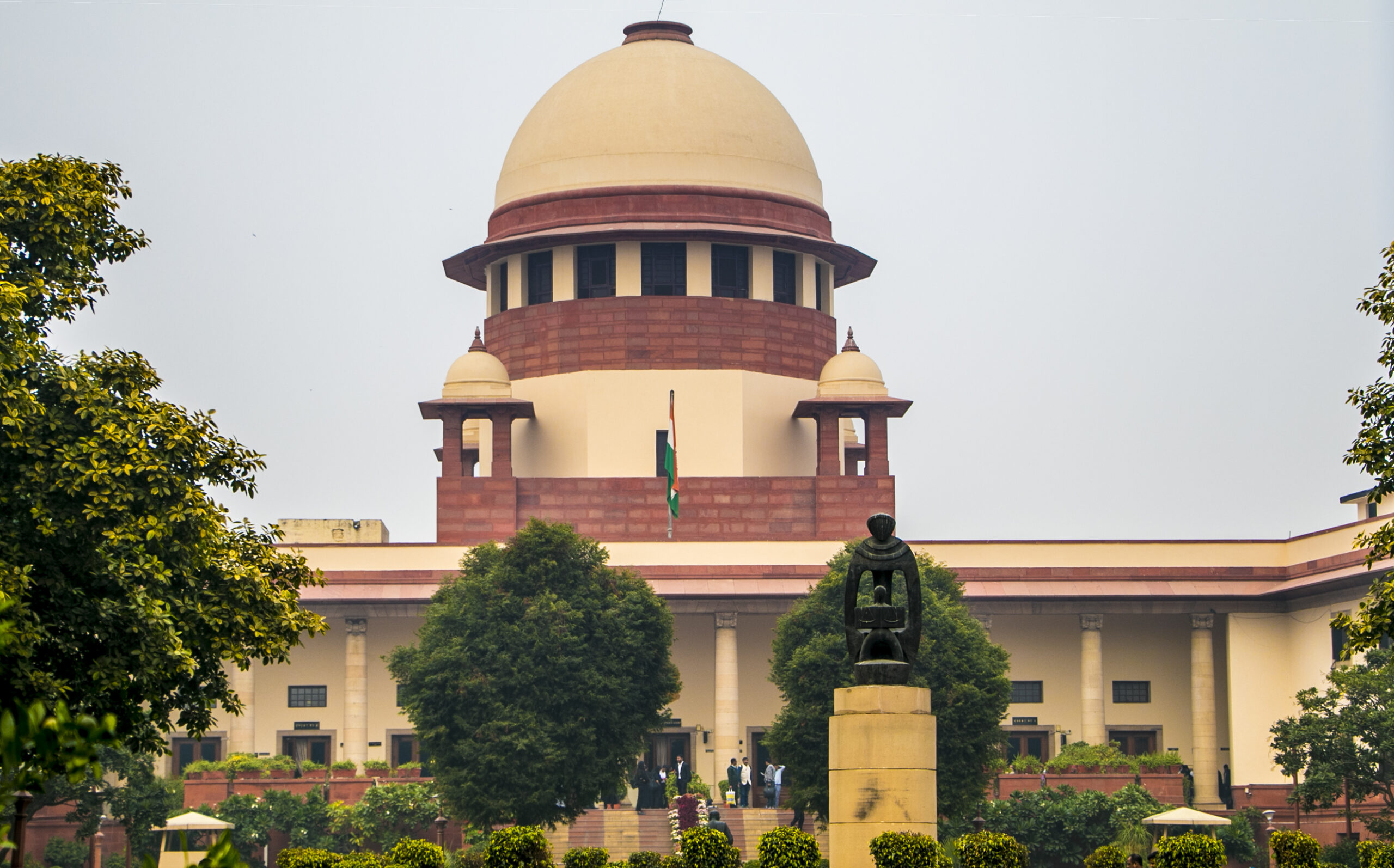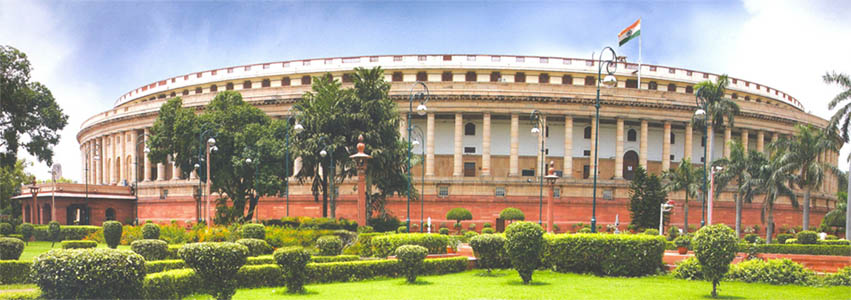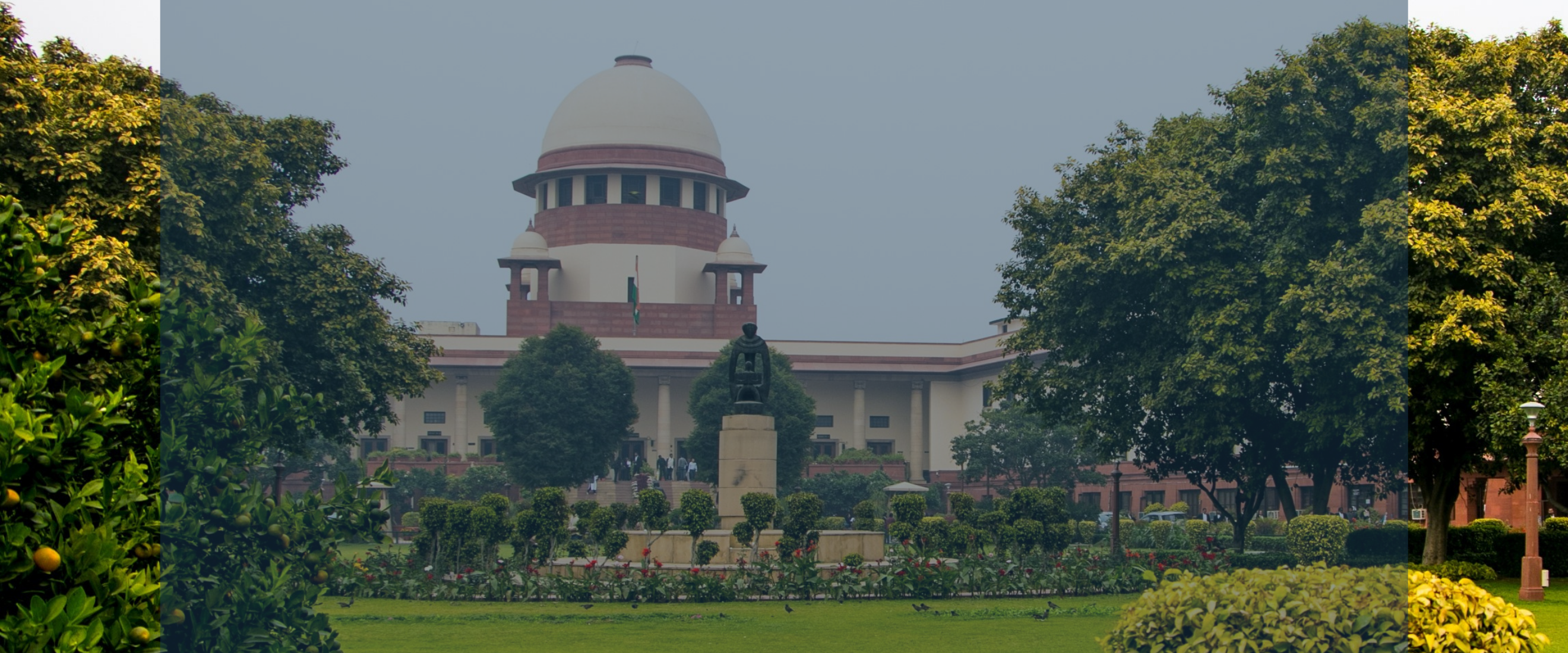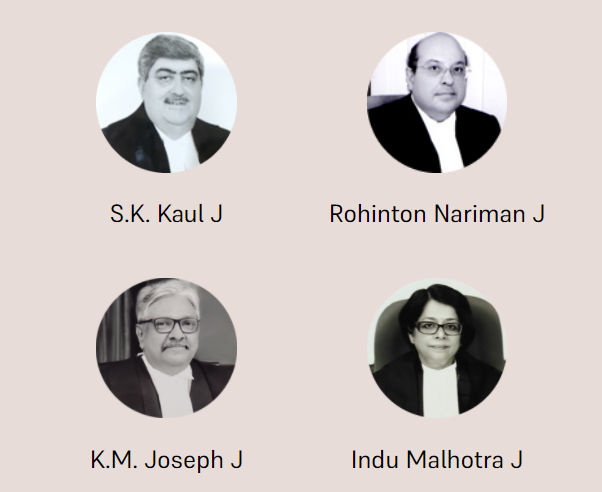Analysis
Reservation in Promotion: Court in Review
The jurisprudence around Article 16(4) governs reservations granted for promotions in public employment.
1992
Indra Sawhney v UOI
A nine-judge Bench held that Article 16(4) does not grant reservation in promotion because it pertains only to reservation in appointments. The judgment put all reservations in promotion granted to SCs/STs in public employment at risk. The Court took this into account. Its judgement allowed reservation in promotion to continue for five years post November 16th, 1992.
1995
Article 16(4A) - 77th Amendment
In 1995, the Government nullified the effect of Indra Sawhneyby introducing Article 16(4A) through the 77th Amendment of the Constitution. Article 16(4A) allowed the State to provide reservations to a SC/ST in matters of promotion, as long as the State believes that the SC/ST is not adequately represented in government services.
1996
Introduction of Catch Up Rule - Ajit Singh v State of Punjab
After reservation in promotion was constitutionally recognized, it led to a situation where reserved category candidates, who were promoted over general class counterparts, became their senior due to earlier promotion. This anomaly was addressed by two judgments Virpal Singh (1995) and Ajit Singh (1996), which introduced the concept of a Catch Up Rule. The rule held that senior general candidates who were promoted after SC/ST candidates would regain their seniority over general candidates, promoted earlier.
2000
Article 16(4B) & Carry Forward Rule – 81st Amendment
Two amendments were brought in 2000 for seamless facilitation of reservation in promotion for SC/STs. The first was the 81st Amendment. Through 81st Amendment, the government introduced Article 16(4B), which allowed reservation in promotion to breach the 50% ceiling set on regular reservations. The Amendment allowed the State to carry forward unfilled vacancies from previous years. This came to be known as the Carry Forward Rule.
2000
Proviso to Article 335 – 82nd Amendment
In 2000, the State amended the Constitution a second time. In the 82nd Amendment, the State added a proviso to Article 335. According to Article 335, the claims of SCs/STs to services and posts have to be consistent with overall administrative efficiency. It introduced a proviso which held that nothing in Article 335 would prevent the State from relaxing the qualifying marks or lowering the standard of evaluation for reservation in matters of promotion to members of SC and STs. The proviso to Article 335 undid the Supreme Court’s 1996 judgement in Vinod Kumar, which specifically ruled against relaxations in qualifying marks in matters of reservation in promotion.
2001
Article 16(4A) & Consequential Seniority for SC/STs – 85th Amendment
In 2001, Parliament negated the Catch-Up Rule that the Court had introduced in Virpal Singh(1995) and Ajit Singh(1996). In the 85th Amendment, Parliament amended Article 16(4A) and introduced the principle of Consequential Seniority to promoted SC/ST candidates. Subsequently, the text of Article 16 (4A) was amended such that “in matters of promotion to any class” became “in matters of promotion, with consequential seniority to any class.”
2006
Nagaraj v UOI
In Nagaraj, the petitioners challenged the 77th, 81st, 82nd and 85th Amendments before the Supreme Court. Ultimately, the Court upheld the Amendments as constitutionally valid. The five-judge Bench upheld the constitutional validity of Reservation in Promotion to SCs/STs. It upheld the Consequential Seniority Rule under Article 16(4A), the Carry Forward Rule under Article 16(4B) and the Proviso to Article 335.
The Court held that for reservation in promotion to be valid, the State has to meet three compelling requirements:
- Demonstrate the backwardness of the SC/ST
- Prove that the SC/ST is inadequately represented in relevant public employment
- Maintain the overall efficiency of administration
2011
After Nagaraj
Following Nagaraj, which introduced the three controlling conditions, various High Courts and the Supreme Court struck down Statutes and Rules extending reservation in promotion policies. The various courts ruled that the State had failed to furnish enough data to meet the controlling conditions. In particular, the courts criticized the State for failing to demonstrate backwardness and/or insufficient representation.
2018
Jarnail Singh v Lacchmi Narain Gupta
A five-judge Bench of the Supreme Court unanimously held that the judgment delivered in Nagaraj in 2006, relating to reservations in promotions for SC/ST persons, does not need reconsideration by a larger seven-judge Bench. The Bench also struck the demonstration of further backwardness criterion from Nagaraj.
While the Court struck down the further backwardness criterion, it also introduced the principle of creamy layer exclusion. It held that creamy layer exclusion extends to SC/STs and, hence the State cannot grant reservations in promotion to SC/ST individuals who belong to the creamy layer of their community.
2019
BK Pavitra v Union of India - II
In 2019, the Supreme Court upheld a reservation in promotion policy. The Supreme Court upheld a 2018 Karnataka Reservation Act on the ground that the State had furnished sufficient data to demonstrate both that SC/STs are inadequately represented and that the policy would not adversely affect efficiency. The 2018 Act introduces consequential seniority for SC/STs in State Government Services.
In its judgment, the Court introduced a new inclusive definition of administrative efficiency under Article 335 of the Constitution. The new definition balances merit with ensuring adequate representation. Also of note, the Court upheld the Act despite the fact that the State had failed to apply the creamy layer test introduced in Jarnail Singh. The Court reasoned that the test can only be applied at the stage of reservation in promotion and not at the stage of consequential seniority.







